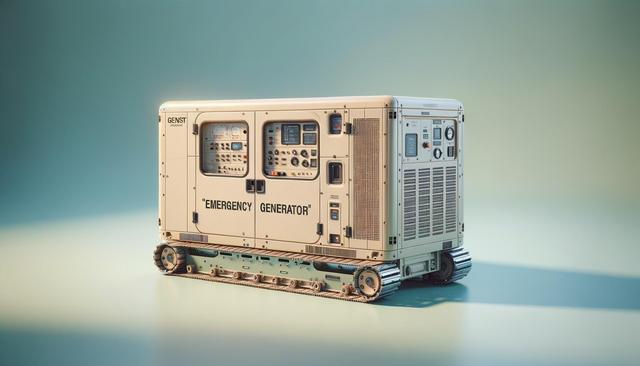Why an Emergency Generator Can Be a Vital Backup Power Solution
Having a reliable emergency generator can provide peace of mind when unexpected power outages occur.

The Importance of Backup Power
Power outages can happen at any time due to extreme weather, grid failures, or unforeseen accidents. Without a backup power source, homes and businesses can face significant disruptions. An emergency generator serves as a dependable solution to maintain essential functions like lighting, refrigeration, and communication when the main power supply is unavailable. For households, this can mean preserving food, powering medical equipment, or simply staying connected. For businesses, even a short disruption can lead to operational losses. Investing in an emergency generator helps ensure continuity and safety during unexpected situations.
Some common causes of power outages include:
- Severe storms or hurricanes
- Fallen trees or utility pole damage
- Overloaded electrical grids
- Maintenance or infrastructure failures
Understanding these risks underscores the value of having a reliable backup system in place.
Types of Emergency Generators
There are several types of emergency generators available, each designed to suit specific needs and scenarios. The two primary categories are portable generators and standby generators. Portable units are ideal for temporary and mobile use. They are often powered by gasoline and can be manually started during an outage. Their portability makes them suitable for smaller power needs or remote locations.
Standby generators, on the other hand, are permanently installed and connected to a home’s or building’s electrical system. They are typically powered by natural gas or propane and can activate automatically when a power interruption is detected. These systems are more powerful and can support larger appliances and entire households or commercial operations.
Key differences between portable and standby units include:
- Fuel source and availability
- Power output and capacity
- Installation complexity
- Automation and ease of use
Selecting the right type depends on individual requirements, budget, and intended usage.
Choosing the Right Generator for Your Needs
When choosing an emergency generator, several factors should be considered to ensure it meets your specific needs. First, determine the total wattage of the appliances and systems you want to power during an outage. This will help identify the appropriate generator size and capacity. It’s also important to consider the fuel type—gasoline, diesel, propane, or natural gas—based on availability and storage safety in your area.
Other considerations include:
- Runtime and fuel efficiency
- Noise levels during operation
- Maintenance requirements
- Safety features such as overload protection
Consulting with a qualified electrician or energy expert can help confirm compatibility with your home or business’s existing electrical setup. Additionally, understanding local regulations or permit requirements for installation is crucial.
Maintenance and Safety Tips
Regular maintenance is essential to keep an emergency generator in optimal working condition. Neglecting upkeep can lead to performance issues or even complete failure during critical times. Check the manufacturer’s guidelines for recommended service intervals, which commonly include oil and filter changes, fuel system inspections, and battery tests.
Safe operation is equally important. Always operate generators in well-ventilated areas to prevent carbon monoxide buildup, and never run them indoors or in enclosed spaces. Proper storage of fuel—especially for portable models—is also vital to prevent fire hazards or fuel degradation.
Helpful maintenance and safety tips include:
- Run the generator periodically to keep internal components lubricated
- Inspect for signs of wear or damage before each use
- Keep spare parts and fuel on hand for emergencies
- Install carbon monoxide detectors in areas near the generator
Following these practices helps ensure your generator remains a dependable source of power when it’s most needed.
Cost Considerations and Long-Term Value
While emergency generators represent an upfront investment, their long-term value often outweighs the initial cost. Prices vary based on the type, size, and features of the unit. Portable models are generally more affordable, while standby systems come with higher installation and setup costs. However, the peace of mind and protection they offer during outages can be invaluable.
In addition to the purchase price, consider the costs of:
- Fuel and storage containers
- Routine maintenance and servicing
- Installation and electrical upgrades
- Safety accessories such as transfer switches
For businesses, the cost of downtime during a power outage can be significant, making a generator a worthwhile investment in operational continuity. For homeowners, protecting appliances, electronics, and perishable items can justify the expense over time. Ultimately, selecting a generator that aligns with your needs and budget can provide long-term resilience and security.